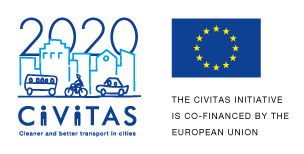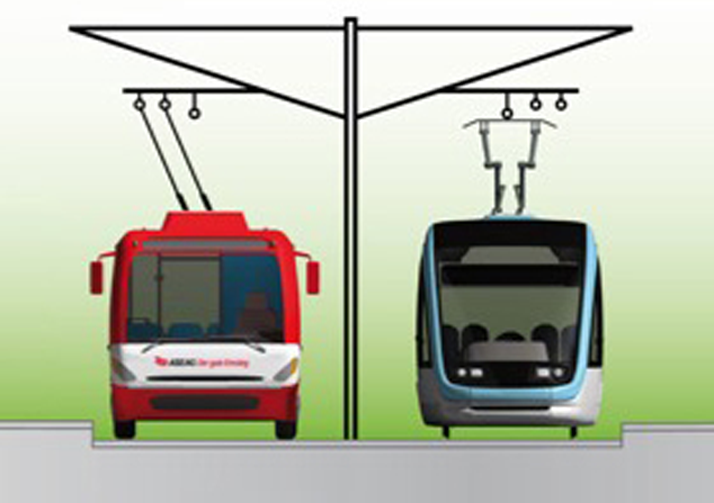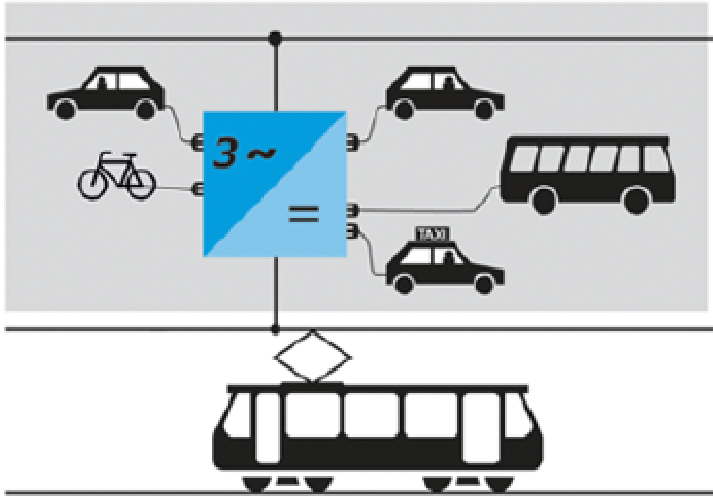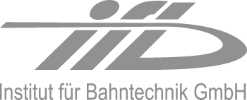ELIPTIC

ELIPTIC IN BRIEF
The project started on 06/2015 for 2018
Budget: of 5.98 millionEuro.
This project has received funding from the European Union’s Horizon 2020 research and innovation programme under grant agreement No 636012.
33 ELIPTIC Partner
AsstrA, BBG, BSAG, BSM, Stadt Bremen, FAS, Fraunhofer-Gesellschaft, Irizar, LowCVP, LVB, MZA, PIMOT, PKT, POLIS, Rupprecht Consult, RWTH Aachen, SAG, Siemens, Solaris, STIB, STOAG, SZKT, TFL, TMB, trolley:motion, UG, UITP, Uniroma 1, UPC, USZ, VDV, VKD, VUB, ZIEHL
ELIPTIC_Brochure_FINAL_31-08-2016
ELIPTIC_D2.21_FAS_Lanciano_Use_case_
The ELIPTIC project, funded under the Horizon 2020 initiative, focuses on optimizing electric public transport infrastructure to save energy and costs while promoting sustainable mobility. The project leverages existing electric public transport systems, such as buses, trolleybuses, light rail, metro, and tram, to integrate innovative technologies and concepts across European cities.
Mission and Objectives
ELIPTIC addresses key challenges in urban transportation, including the limited driving range of electric vehicles and insufficient charging infrastructure. The project’s objectives include:
-
- Safe integration of e-buses into existing networks.
- Enhanced energy efficiency through innovative storage and management systems.
- Multi-purpose utilization of public transport infrastructure for diverse electric vehicles.
Thematic Pillars
- Integration of e-buses:
- Replacing diesel buses with hybrid and battery-electric buses.
- Testing technologies like automatic wiring and innovative charging systems.
- Innovative energy storage:
- Recuperating and managing braking energy.
- Upgrading existing infrastructure for smart energy solutions.
- Multi-purpose infrastructure:
- Using tram and metro sub-stations for charging electric bicycles, cars, and vans.
Key Outputs
-
- Development of 21 innovative concepts.
- Online tools for planning and training.
- Comprehensive evaluation of technical and business approaches.
- Policy recommendations and guidelines for sustainable electrification.
- Networking and dissemination efforts to engage stakeholders across Europe.
Key Use Cases by City
- Bremen: Focused on integrating electric buses, energy storage, and multimodal mobility systems to assess KPIs like energy efficiency and passenger satisfaction.ELIPTIC_D2.1_Bremen_Use_case_set_up_report
- London: Investigated the use of the London Underground’s electrical network for bus and taxi charging to test logistical and economic viability.ELIPTIC_D2.3_London_Use_case_set_up_report
- Brussels: Studied the electrification of hybrid bus networks and optimized braking energy recovery in trams.ELIPTIC_D2.5_Brussels_Use_Cases_set-up_report
- Barcelona: Compared off-street depot charging with on-street opportunity charging for electric buses, and assessed the feasibility of metro network-based EV charging.ELIPTIC_D2.7_Barcelona_Use_case_set_up_report
- Warsaw: Explored the use of tram catenaries for e-bus chargers, focusing on overcoming procedural barriers and evaluating charging equipment.ELIPTIC_D2.9_Warsaw_Use_case_set_up_report
- Leipzig: Conducted a feasibility study on battery-electric buses for various routes and examined legal and technical challenges of using tram networks for multi-purpose energy supply.ELIPTIC_D2.11_Leipzig_Use_case_set_up_report
- Oberhausen: Investigated the integration of tram infrastructure for e-bus charging and the feasibility of multi-purpose infrastructure usage.ELIPTIC_D2.13_Oberhausen_Use_case_setup_report
- Gdynia: Focused on hybrid trolleybuses and the potential for expanded electrification while addressing political and operational risks.ELIPTIC_D2.15_Gdynia_Use_case_set_up_report
- Eberswalde: Examined the integration of a diesel bus line into the trolleybus system with retrofitted energy storage, testing automated wiring systems.ELIPTIC_D2.17_Eberswalde_Use_case_set_up_report_01
- Szeged: Studied multi-purpose e-vehicle chargers and enhancements to public transport electrification, including charging solutions for various urban settings.ELIPTIC_D2.19_Szeged_Use_case_set_up_report
Key Themes and Challenges
- Technology: Testing energy storage solutions, integrating charging systems, and leveraging existing infrastructure.
- Economics: Life-cycle cost assessments, operational efficiency, and feasibility of shared resources.
- Legal and Political: Addressing barriers related to energy sharing and regulatory compliance.
- Environmental Impact: Evaluating reductions in emissions and energy consumption.
Impact and Legacy
ELIPTIC aims to establish cost-effective, scalable solutions for urban transport electrification. By engaging 33 partners across eight EU member states, the project fosters collaboration among operators, authorities, universities, and industry experts, ensuring the longevity and adaptability of its innovations.

Pillar A
E-buses – Safe integration into existing electric PT infrastructure

Pillar B
Energy efficient electric PT system

Pillar C
Multi-purpose use of electric PT infrastructure









